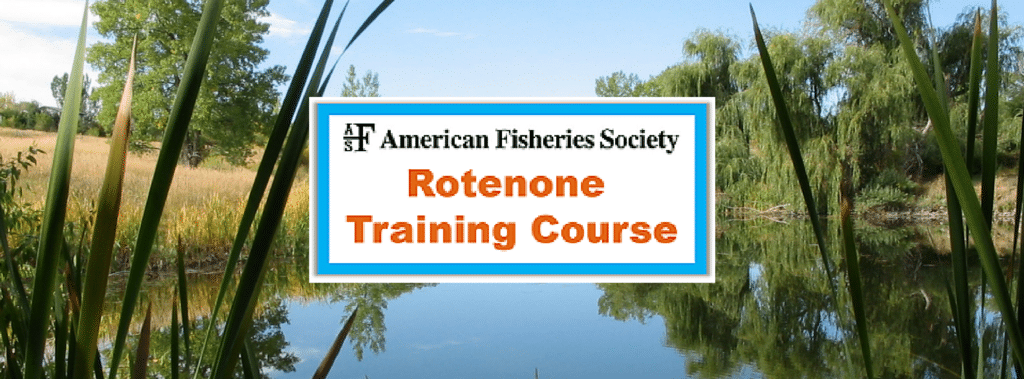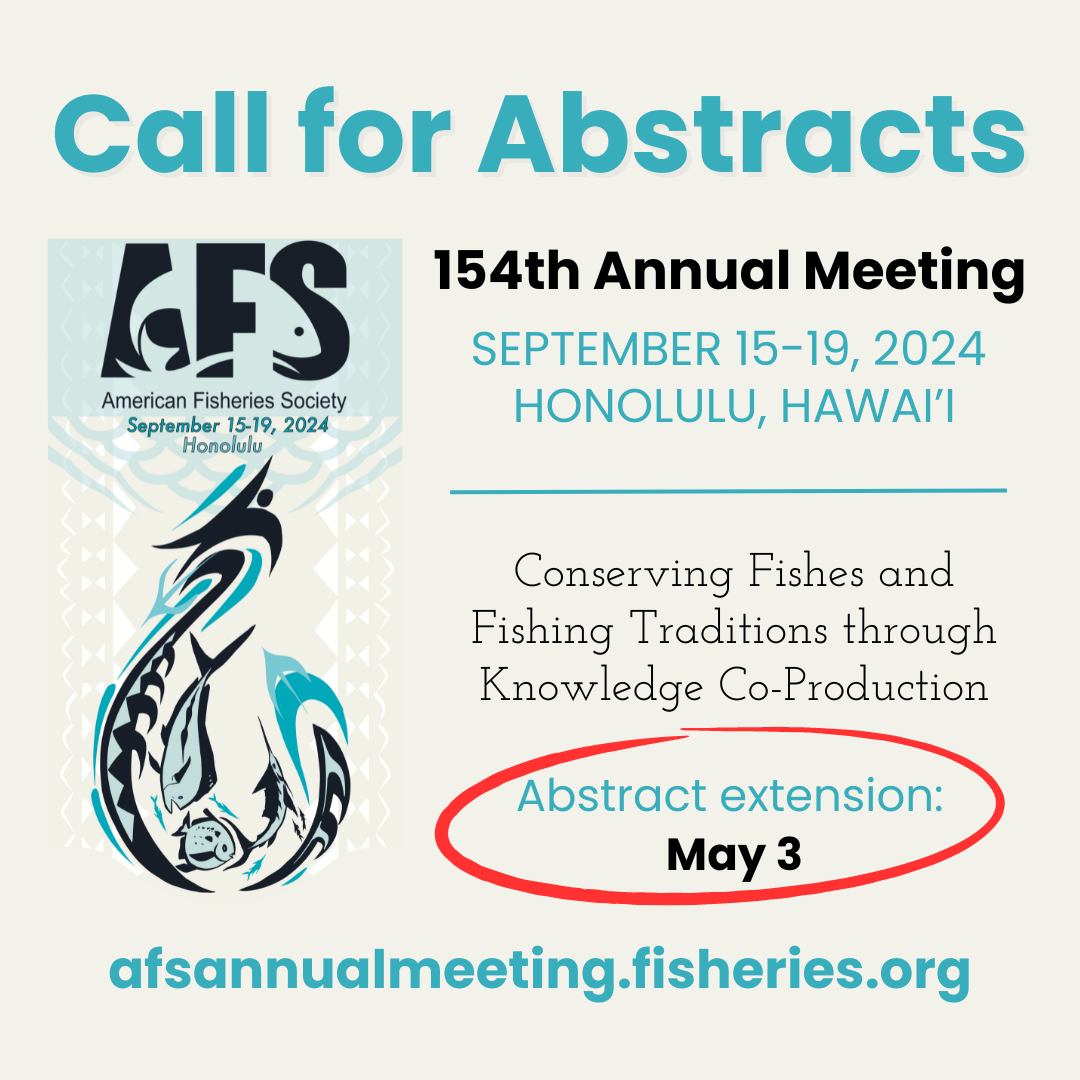
Spring 2024 In-person Course:
Description
The 4½ day training course stresses public involvement, safety, and application restrictions and techniques from the new 2nd edition AFS Rotenone SOP Manual and is taught by manual’s two senior authors. The course was developed to meet the U.S. Environmental Protection Agency’s labeling requirements that include the AFS Rotenone SOP Manual. The course uses classroom lectures, laboratory and field exercises, participant presentations, classroom discussions, and quizzes on the content as instructional methods. Topics include: soliciting public involvement; fisheries management/conservation plans; species sensitivities to chemicals; selective versus eradication treatments; detecting and treating upwelling groundwater; use of GPS technology in planning treatments; proper safety equipment; rotenone and potassium permanganate chemistry, toxicology and environmental behavior; reading and following labels and SDSs; instructive project case histories; crisis management strategies; and characteristics of successful projects. The participants perform laboratory, field and planning exercises during the course including performing toxicity tests on rotenone and potassium permanganate at realistic concentrations, performing calculations to determine amount of chemicals needed to treat flowing and standing waters, constructing and operating application and deactivation equipment, and developing public involvement, application, deactivation, safety and monitoring plans. Participants receive a copy of the AFS Rotenone SOP Manual published in 2018, and successful completion of a final exam will give the participant a certificate of completion from AFS.
Attendance
Biologists, technicians, and mangers that apply, manage or administer project budgets and personnel or deal with public communications on rotenone or antimycin projects.
Continuing Education Credits
The class has been accredited for continuing education hours in state Qualified Applicator License/Certificate programs. If interested, please contact Brian Finlayson ([email protected]) for more information. The course has also been approved for Professional Development Quality Points by the American Fisheries Society Continuing Education Committee.
Course Objectives
• Develop strategies for projects that reflect sensitivities of target species, characteristics of the chemicals and influencing environmental conditions;
• Develop plans for public involvement, application, neutralization, monitoring, and safety;
• Develop strategies that deal positively and effectively with unanticipated events;
• Implement application and deactivation techniques that minimize environmental impacts;
• Explain product label and SDS requirements and how these affect use;
• Characterize effects on target and non-target organisms and environmental fate of the chemicals;
• Understand the need and techniques available for involving the public during the planning process; and
• Describe key environmental laws, regulations, and processes and how these affect use.
When:
May 20-24, 2024
Where:
Utah State University
Logan, Utah
Length: 4.5 days
Tuition: $1300 ($1200 AFS members)
Register Now!
Agenda: Coming soon!
Cancellation Policy:
All refund requests must be made in writing by email ([email protected]) by Friday, May 3, 2024. 80% of the total charges will be then refunded. No cancellations or refunds will be made after that date. Full refunds will be issued only in the case of cancellation of a continuing education workshop by AFS.
For 2024 class information, please contact:
Brian Finlayson, 530.957.0333, [email protected] or
Don Skaar, 406-465-6135, [email protected]






